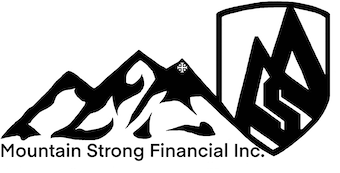Mountain Strong Financial Inc.
Life will always give us challenges, it is up to you if you react, or respond, let’s build a strong plan and have a choice! Helping you find safe footing during the storm of life, securing your finances with proven financial strategies and strong financial products to see you through.
Email Us
joe@mountainstrongfinancial.ca
Call Us
Toll Free: (833) 425-8885
Individuals & Families
Customized solutions based on you, plans for to accumulate and protect your wealth.
Business Owners
Strategies to help increase your personal cash flow, keep key employees and protect your business.
Incorporated Professionals
Tailored solutions to help you with your practice and personal cash flow.
Insurance
Peace of mind for you and your family. Taking care of what matters most.
Investments
Grow your wealth. Feel confident in your finances.
Employee Benefits
Strategies to help you keep and attract key employees.
Financial Advice
Tailored advice to help you achieve your financial goals.
Retirement Planning
Strategies to help you retire with financial confidence.
Estate Planning
Customized strategies for inheritance, wealth transfer and succession to protect your loved ones.
Latest News

Estate Planning for Blended Families
Blended families – where two people get married but have children from previous relationships – are becoming more common. On top of the day-to-day challenges of blending a family, new spouses also have to figure out how to plan their estates, so everyone is properly taken care of.
We cover all of the following a blended family must consider while estate planning:
• Sharing the Family Home
• Make the Most of a Registered Retirement Savings Plan
• How to Share Non-Registered Investments and Other Assets
• Why It's Important to Select a Good Trustee
• The Advantages of Life Insurance for Blended Family Planning
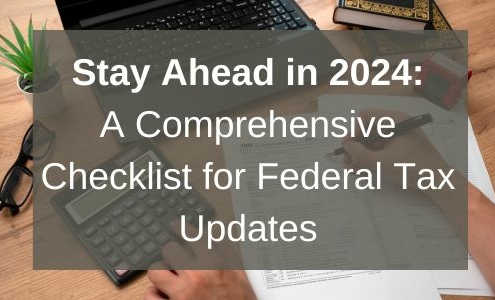
Stay Ahead in 2024: A Comprehensive Checklist for Federal Tax Updates
Explore the upcoming 2024 Canadian tax changes affecting investors, business owners, and high-net-worth individuals. From capital gains adjustments to new incentives, stay informed with our comprehensive checklist.
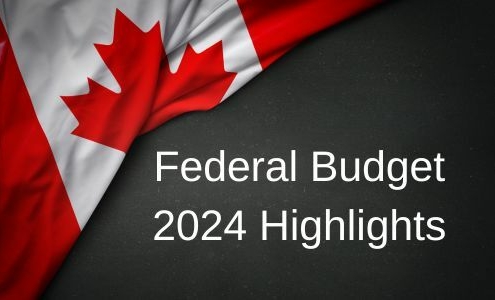
2024 Federal Budget Highlights
On April 16, 2024, Canada's Deputy Prime Minister and Finance Minister, Chrystia Freeland, presented the federal budget.
While there are no changes to federal personal or corporate tax rates, the budget introduces:
• An increase in the portion of capital gains subject to tax, rising from 50% to 66.67%, starting June 25, 2024. However, individual gains up to $250,000 annually will retain the 50% rate.
• The lifetime exemption limit for capital gains has been raised to $1.25 million. Additionally, a new one-third inclusion rate is set for up to $2 million in capital gains for entrepreneurs.
• The budget confirms the alternative minimum tax changes planned for January 1, 2024 but lessens their impact on charitable contributions.
• This year's budget emphasizes making housing more affordable. It provides incentives for building rental properties specifically designed for long-term tenants.
• Introduces new support measures to aid people buying their first homes.
• Costs for specific patents and tech equipment and software can now be written off immediately.
• Canada carbon rebate for small business
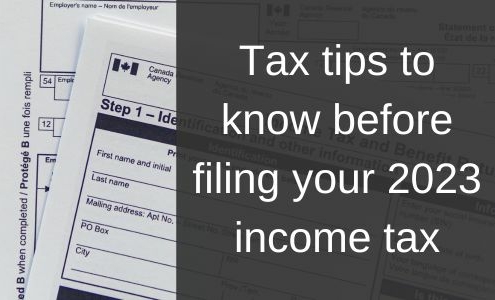
Tax tips to know before filing your 2023 income tax
Unlock the secrets to maximizing your 2023 tax returns with our essential guide. From the new Advanced Canada Workers Benefit to crucial deductions for families, ensure you're not leaving money on the table this tax season.

Easy Exit: Business Succession in a Nutshell
Getting into the world of business is a meticulous task, but so is getting out of it Whether you’ve just hit the ground running on your business or if you’ve been at it for a long time, there is no better time to plan your exit strategy than now.

Don’t lose all your hard-earned money to taxes
It’s essential to manage your tax planning properly – both while you are living and for after your death. You want as much of your money as possible to go to your beneficiaries, not the government. Our article contains three tips to help you do that:
1. Learn how to make the most of the lifetime capital gains exemption.
2. Figure out ways to decrease your end-of-life tax bill.
3. Look into Immediate Financing Arrangements.
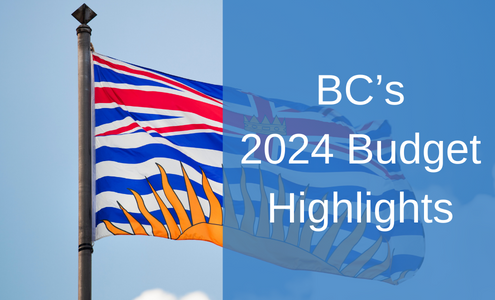
British Columbia’s 2024 Budget Highlights
Discover how B.C.'s 2024 Budget introduces a home flipping tax, raises property transfer tax exemptions, and enhances the climate action tax credit. A pivotal shift for homeowners, buyers, and the environment.
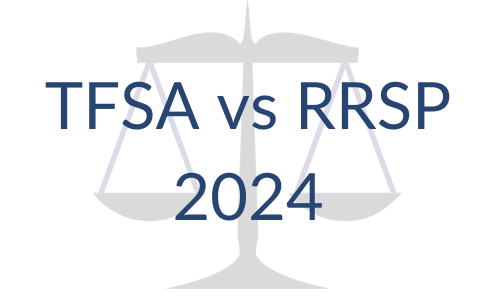
TFSA vs RRSP – 2024
When looking to save money in a tax-efficient manner, Tax-Free Savings Accounts (TFSA) and Registered Retirement Savings Plans (RRSP) can offer significant tax benefits. The main difference between the two is that TFSAs are ideal for short-term goals, such as saving for a down payment on a house or a vacation, as its growth is entirely tax-free, while RRSPs are more suitable for long-term goals such as retirement. When comparing deposit differences, TFSAs have a limit of $7,000 for the current year, while RRSPs have a limit of 18% of your pre-tax income from the previous year, with a maximum limit of $31,560. In terms of withdrawals, TFSAs have no conversion requirements and withdrawals are tax-free, while RRSPs must be converted to a Registered Retirement Income Fund (RRIF) at age 71 and withdrawals are taxed as income.

Do you have enough for retirement?
Many of us dream of the day that we can retire and have the time to ourselves that we have dreamed of for so many years. But, to have a genuinely contented and relaxing retirement, you need to ensure that you have the means to afford it. So, now's the best time to consider the three critical stages of retirement planning.
1) Accumulation
2) Pre-retirement
3) Retirement

Do you need an estate plan?
Managing your finances raises a number of topics but none as tricky and potentially unpleasant as planning for your family and finances in the event that you pass away or become incapacitated. Understandably, these questions are often ignored by many—but don’t fall into the trap of avoiding these difficult matters. Good estate planning will help to make sure that your wishes are carried out, and your family and assets are well protected.
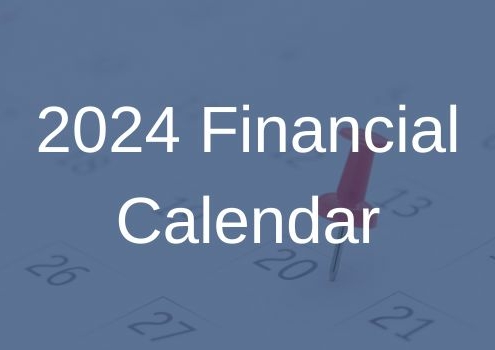
2024 Financial Calendar
Stay ahead in 2024 with our comprehensive financial calendar! From tax filing to benefit distributions, we guide you through key dates like the $7,000 TFSA contribution and $8,000 First Home Savings Account. Bookmark now for a financially savvy year!
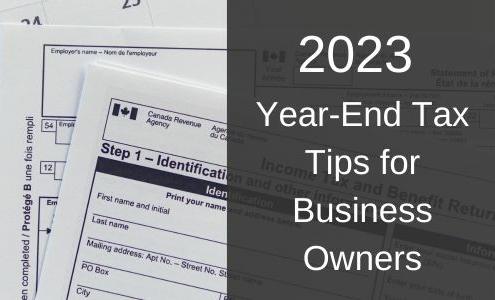
2023 Year-End Tax Tips and Strategies for Business Owners
Maximize your tax benefits as a business owner in 2023! Learn key strategies for salary vs. dividends, passive investments, and more.
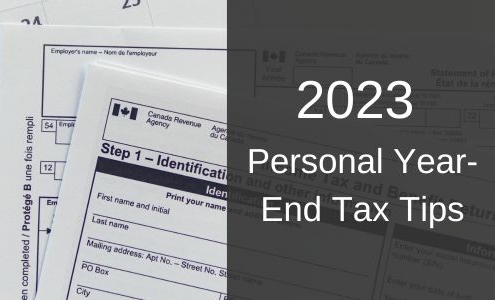
2023 Personal Year-End Tax Tips
Maximize your tax savings! Discover expert tips on investments, family deductions, retirement, and more in our latest article.
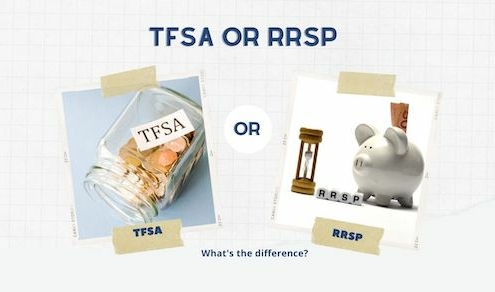
TFSA versus RRSP – What you need to know to make the most of them in 2023
When looking to save money in a tax-efficient manner, Tax-Free Savings Accounts (TFSA) and Registered Retirement Savings Plans (RRSP) can offer significant tax benefits. The main difference between the two is that TFSAs are ideal for short-term goals, such as saving for a down payment on a house or a vacation, as its growth is entirely tax-free, while RRSPs are more suitable for long-term goals such as retirement. When comparing deposit differences, TFSAs have a limit of $6,500 for the current year, while RRSPs have a limit of 18% of your pre-tax income from the previous year, with a maximum limit of $30,780. In terms of withdrawals, TFSAs have no conversion requirements and withdrawals are tax-free, while RRSPs must be converted to a Registered Retirement Income Fund (RRIF) at age 71 and withdrawals are taxed as income.
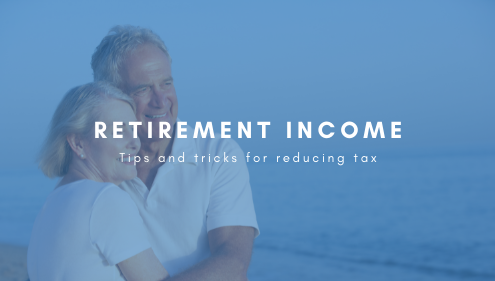
Essential tips for paying less tax and keeping more of your retirement income
It’s important to make the most of your retirement income. To do so, you need to be aware of what income is and isn’t taxable, and also how to make the most of the tax breaks you’re entitled to. This article outlines the four main steps you need to take to ensure you keep as much of your retirement income as possible:
1. Make a financial plan.
2. Split your pension income.
3. Buy an annuity.
4. Be aware of retirement-related tax breaks.

Do you REALLY need life insurance?
You most likely do, but the more important question is, What kind? Whether you’re a young professional starting out, a devoted parent or a successful CEO, securing a life insurance policy is probably one of the most important decisions you will have to make in your adult life. Most people would agree that having financial safety nets in place is a good way to make sure that your loved ones will be taken care of when you pass away. Insurance can also help support your financial obligations and even take care of your estate liabilities.
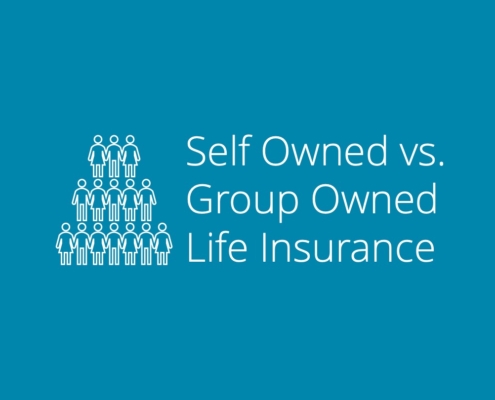
Group Insurance vs Individual Life Insurance
While it’s great to have group coverage from your employer or association, in most cases, people don’t understand the that there are important differences when it comes to group life insurance vs. self owned life insurance.
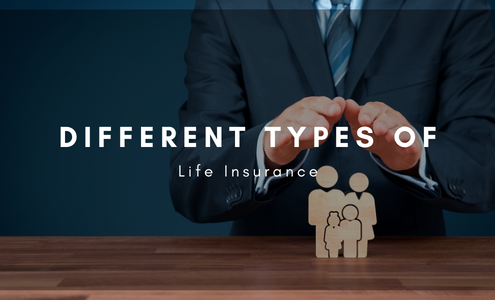
Different types of life insurance explained
Whether you already have life insurance or are looking to get some, it’s essential to be familiar with the four most common kinds of life insurance available. Getting the best type of life insurance for you ensures that you are getting the coverage you want while providing financial protection for you and your family. These are the four most common kinds of life insurance:
• Term life insurance
• Permanent life insurance
• Participating life insurance
• Universal life insurance
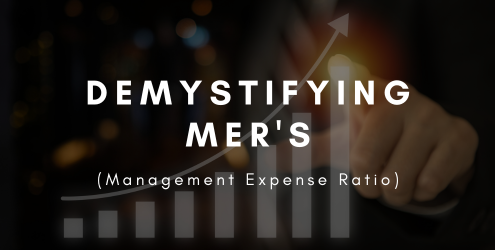
Demystifying MER’s (Management Expense Ratio)
Investing in a fund involves knowing its associated costs, and the Management Expense Ratio (MER) is a crucial factor to consider. The MER is a percentage of the total assets in the investment fund that covers the fund's operating and management costs. It's important to note that the MER is subtracted from your investment returns, so a higher MER will result in lower net returns for you. For example, if a fund's expenses amounted to 2% of its assets, its MER would be 2%. It's crucial to understand the MER of a fund to make informed investment decisions and ensure that you're getting the most value for your money. In this article and infographic, we will break down the various components of the MER to help you better understand it.

First Home Savings Account (FHSA): What You Need to Know
Are you looking to buy your first home in Canada? The First Home Savings Account (FHSA) could help make it happen. This savings plan allows first-time home buyers to save up to $40,000 tax-free, with contributions being tax-deductible. In this article and infographic, we cover everything you need to know about FHSA, including eligibility requirements, contributions and deductions, qualifying investments, withdrawals, and transfers.
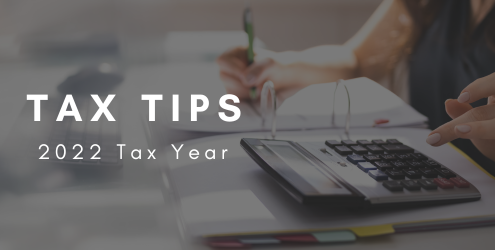
Tax Tips You Need To Know Before Filing Your 2022 Taxes
It’ll be time to file your 2022 taxes soon, and you must take advantage of every tax credit and deduction you can! Our article covers the following:
• Canada Workers Benefit.
• Claiming home office expenses.
• The tax deduction for zero-emissions vehicles.
• Return Of Fuel Charge Proceeds To Farmers Tax Credit.
• Eligible Educator School Supply Tax Credit.
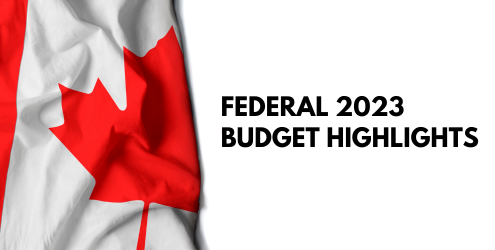
Federal Budget 2023 Highlights
On March 28, 2023, the Federal Government released their 2032 budget. This article highlights the following financial measures:
• New transfer options associated with Bill C-208 for intergenerational transfer.
• New rules for employee ownership trusts.
• Changes to how the Alternative Minimum Tax is calculated.
• Improvements to Registered Education Savings Plans.
• Expanding access to Registered Disability Savings Plans.
• Grocery rebate.
• Deduction for tradespeople tool expenses.
• Automatic tax filing.
• New Canadian Dental Care Plan.
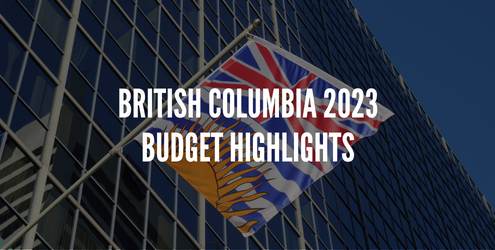
British Columbia 2023 Budget Highlights
On February 28, 2023, the B.C. Minister of Finance announced the 2023 budget. We have highlighted the most important financial measures you need to know:
• Tax credit changes.
• Increases to the B.C Family Benefit.
• Carbon tax changes.
• Other important tax changes.
• Healthcare and housing spending.

TFSA versus RRSP – What you need to know to make the most of them in 2023
When looking to save money in a tax-efficient manner, Tax-Free Savings Accounts (TFSA) and Registered Retirement Savings Plans (RRSP) can offer significant tax benefits. The main difference between the two is that TFSAs are ideal for short-term goals, such as saving for a down payment on a house or a vacation, as its growth is entirely tax-free, while RRSPs are more suitable for long-term goals such as retirement. When comparing deposit differences, TFSAs have a limit of $6,500 for the current year, while RRSPs have a limit of 18% of your pre-tax income from the previous year, with a maximum limit of $30,780. In terms of withdrawals, TFSAs have no conversion requirements and withdrawals are tax-free, while RRSPs must be converted to a Registered Retirement Income Fund (RRIF) at age 71 and withdrawals are taxed as income.

2023 Financial Calendar
Welcome to our 2023 financial calendar! This calendar is designed to help you keep track of important financial dates and deadlines, such as tax filing and government benefit distribution. You can bookmark this page for easy reference or add these dates to your personal calendar to ensure you don't miss any important financial obligations.
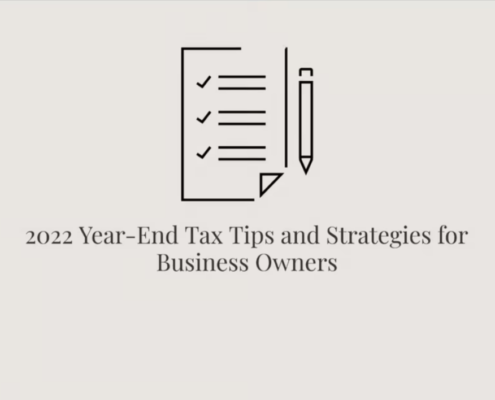
2022 Year End Tax Tips and Strategies for Business Owners
The end of 2022 is quickly approaching – which means for business owners, it's time to review tax tips and strategies to maximize your benefits.
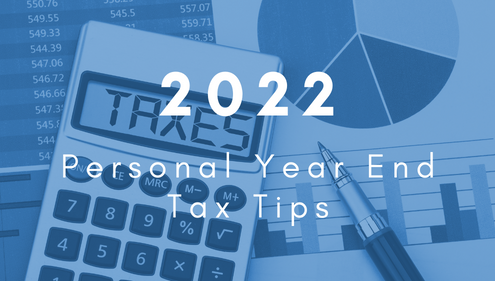
2022 Personal Year-End Tax Tips
The end of 2022 is quickly approaching – which means it’s time to get everything in order, so you’re ready when it comes time to file your taxes.
We’ve broken this article into the following sections to make it easy to find the tax tips you’re looking for:
• Investment considerations, including how to best contribute to TFSAs, RRSPs, and RDSPs.
• Families, including how to claim childcare expenses and make the most of RESPs.
• Retirees, including essential details about applying for CPP and OAS.

Do you have enough for retirement?
Many of us dream of the day that we can retire and have the time to ourselves that we have dreamed of for so many years. But, to have a genuinely contented and relaxing retirement, you need to ensure that you have the means to afford it. So, now's the best time to consider the three critical stages of retirement planning.
1) Accumulation
2) Pre-retirement
3) Retirement

Essential tips and tricks for paying less tax and keeping more of your retirement income
It’s important to make the most of your retirement income. To do so, you need to be aware of what income is and isn’t taxable, and also how to make the most of the tax breaks you’re entitled to. This article outlines the four main steps you need to take to ensure you keep as much of your retirement income as possible:
1. Make a financial plan.
2. Split your pension income.
3. Buy an annuity.
4. Be aware of retirement-related tax breaks.

The Five Steps to Investment Planning
An investment advisor can help you figure out what the right investment choices are for you.
The five steps to investment planning are:
• Meeting your investment advisor
• Determining your goals and expectations
• Developing your investment plan
• Implementing your investment plan
• Monitoring the plan
The sooner you start planning for retirement, the sooner you can get there! An investment advisor can help you get there quicker.

Don’t lose all your hard-earned money to taxes
It’s essential to manage your tax planning properly – both while you are living and for after your death. You want as much of your money as possible to go to your beneficiaries, not the government. Our article contains three tips to help you do that:
1. Learn how to make the most of the lifetime capital gains exemption.
2. Figure out ways to decrease your end-of-life tax bill.
3. Look into Immediate Financing Arrangements.

The Six Steps to Financial Planning
A certified financial planner is trained to focus on all aspects of your finances – everything from your taxes to retirement savings.
The six steps to financial planning are:
• Meeting your financial planner
• Determining your goals and expectation
• Reviewing your current financial state
• Developing a financial plan
• Implementing a financial plan
• Monitoring the plan
A certified financial planner will develop a plan that works for you both today and in the future.

July/August COMMENT Newsletter
COMMENT is an informative newsletter targeted to the unique niche that CLU advisors occupy in the financial services industry, with a focus on risk management, wealth creation and preservation, estate planning, and wealth transfer.

Five Ways To Withdraw Money From Your Business In A Tax-Efficient Manner
You have worked long and hard to build up your business, and now you are ready to withdraw money from your business' bank account. But you don't want to get hit with a huge tax bill. So here are 5 ways to withdraw money from your business in a tax-efficient manner.

Don’t lose all your hard-earned money to taxes
It’s essential to manage your tax planning properly – both while you are living and for after your death. You want as much of your money as possible to go to your beneficiaries, not the government. Our article contains three tips to help you do that:
1. Learn how to make the most of the lifetime capital gains exemption.
2. Figure out ways to decrease your end-of-life tax bill.
3. Look into Immediate Financing Arrangements.
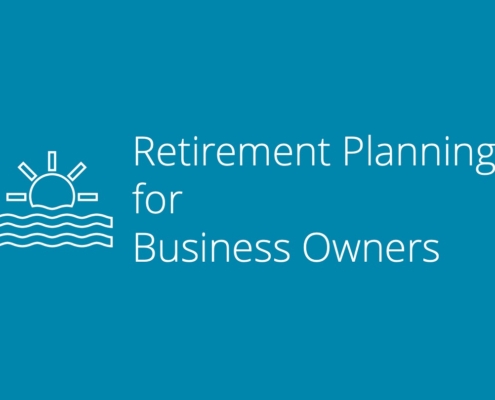
Retirement Planning for Business Owners – Checklist
As a business owner, one of your challenges is learning how to balance between reinvesting into the business and setting money aside for personal savings. Since there are no longer employer-sponsored pension plans and the knowledge that retirement will come eventually, it’s important to have a retirement plan in place.
We've put together an infographic checklist that can help you get started on this.

2022 Federal Budget Highlights
On April 7, 2022, the Federal Government released their 2022 budget. Our article contains highlights of the various financial measures in this budget, divided into these sections:
• Housing
• Alternative minimum tax
• Dental care
• Small businesses
• Tradespeople
• Canada Growth Fund
• Climate
• Bank and insurer taxes

Life Insurance after 60- is it necessary?
You may have had life insurance for as long as you can remember. You knew it was important to make sure that your family would be taken care of and be able to pay their bills if anything happened to you.
But now that you’re over 60, your children are grown, and your mortgage is paid off, you may feel you don’t need life insurance anymore. However, there are some circumstances under which it may still make sense for you to have life insurance:
• You still have substantial debt.
• You have dependent children or grandchildren.
• You want to be able to leave a financial legacy.

Accessing Corporate Earnings
One of the financial planning issues that business owners face is how to access their corporate earnings in a tax efficient way. Please contact us to learn how we can get more money in your pocket than in the government's.
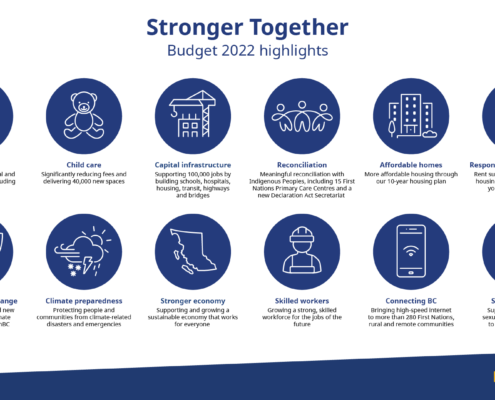
2022 British Columbia Budget Highlights
On February 22, 2022, the B.C. Minister of Finance announced the 2022 budget. We have highlighted the most important financial measures you need to know, with an emphasis on:
• Supporting sustainable economic development
• Offering stronger healthcare
• Expanding child care options and lowering fees
• Supporting capital infrastructure
• Providing funding for affordable housing
• Promoting clean transportation
Budget 2022 includes no changes to personal or corporate tax rates.
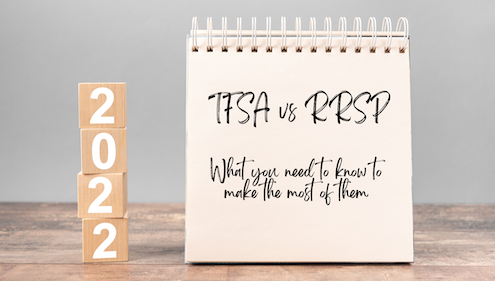
TFSA versus RRSP – What you need to know to make the most of them in 2022
TFSAs and RRSPs can be significant savings vehicles. To help you understand their differences, we have put together this article to compare:
- TFSA versus RRSP - Differences in deposits
- TFSA versus RRSP - Differences in withdrawals
Understanding the differences between these two types of tax-advantaged accounts can help you better plan for future purchases and your eventual retirement.
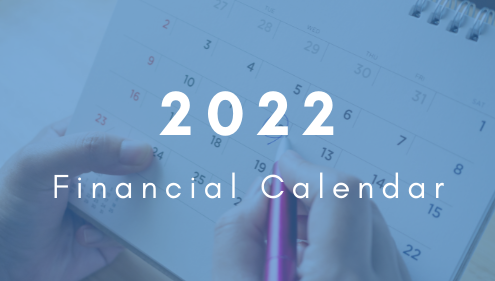
2022 Financial Calendar
Looking for an "at a glance" document covering all the important dates you need to know to stay on track with your financial planning in 2022?
Our 2022 financial calendar (which you can easily bookmark or print out) makes sure you're always in the loop! It lists important dates, including:
• Payments dates for the Canada Child Benefit, CPP, OAS, and the GST/HST credit.
• When TFSA contribution room starts again.
• Tax filing deadlines.
• Charitable contribution deadlines and the last day to contribute to registered investment accounts.
• When the Bank of Canada interest rate announcements are.
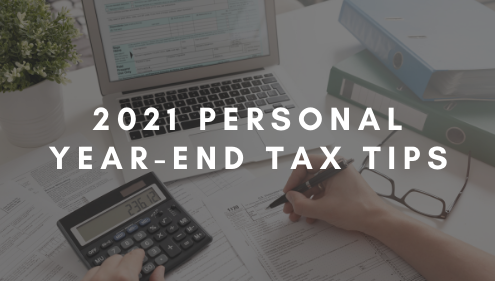
2021 Personal Year-End Tax Tips
The end of 2021 is quickly approaching – which means it’s time to get everything in order, so you’re ready when it comes time to file your taxes.
We’ve broken this article into the following sections to make it easy to find the tax tips you’re looking for:
• Individuals, including details on COVID-19 benefits and important tax credits.
• Investment considerations, including how to best contribute to TFSAs, RRSPs, and RDSPs.
• Families, including how to claim childcare expenses and make the most of RESPs.
• Retirees, including essential details about applying for CPP and OAS.
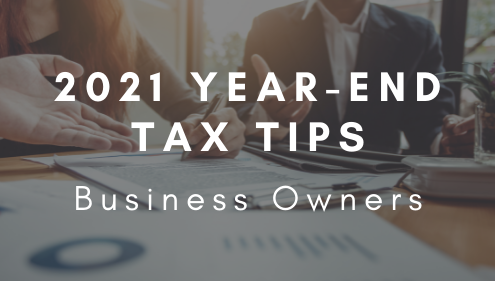
2021 Year-End Tax Tips for Business Owners
We’re approaching the end of the year, so it’s time to review your business finances. We’ve put together an article highlighting the most critical tax-planning tips you need to know as a business owner.
We’ve focused on:
• How to determine the right salary and dividend mix.
• The best ways to handle compensation.
• How to make sure you can take advantage of the small business deduction.
• What you need to know about depreciable assets and charitable donations.
• How to make the most of Covid-19 relief programs.

Financial Planning for Business Owners
Financial planning for business owners is often two-sided: personal financial planning and planning for the business.
Business owners have access to a lot of financial tools that employees don't have access to; this is a great advantage, however it can be overwhelming too. A financial plan can relieve this.
A financial plan looks at where you are today and where you want to go. It determines your short, medium and long term financial goals and how you can reach them. For you, personally and for your business.

“Final Pivot” – COVID-19 Emergency Benefits expire October 23rd, replaced by targeted supports
On Thursday, October 22nd, Deputy Prime Minister and Finance Minister Chrystia Freeland announced the "final pivot in delivering the support needed to deliver a robust recovery." This "Final Pivot" means several existing pandemic support programs for individuals and businesses will expire on October 23rd, 2021:
- Canada Recovery Benefit (CRB)
- Canada Emergency Rent Subsidy (CERS)
- Canada Emergency Wage Subsidy (CEWS)
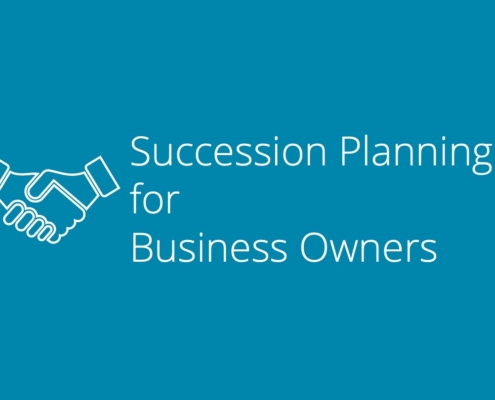
Succession Planning for Business Owners
Business owners deal with a unique set of challenges. One of these challenges includes succession planning. A succession plan is the process of the transfer of ownership, management and interest of a business. When should a business owner have a succession plan? A succession plan is required through the survival, growth and maturity stage of a business. All business owners, partners and shareholders should have a plan in place during these business stages.
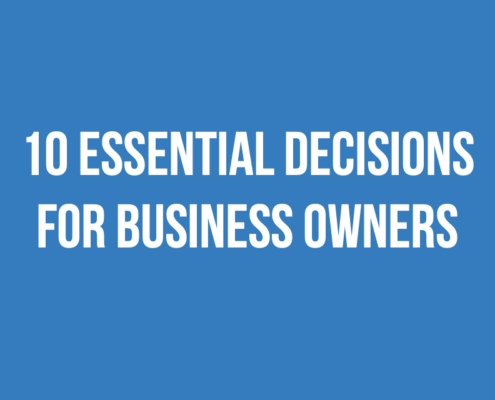
10 Essential Decisions for Business Owners
Business owners are busy… they’re busy running a successful business, wearing lots of hats and making a ton of decisions. We've put together a list of 10 essential decisions for every business owner to consider.
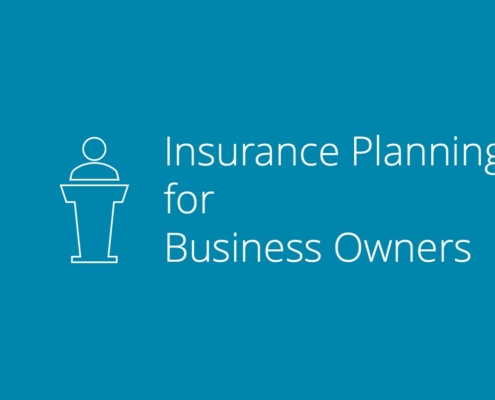
Insurance Planning for Business Owners
For business owners, making sure your business is financially protected can be overwhelming. Business owners face a unique set of challenges when it comes to managing risk. Insurance can play an important role.
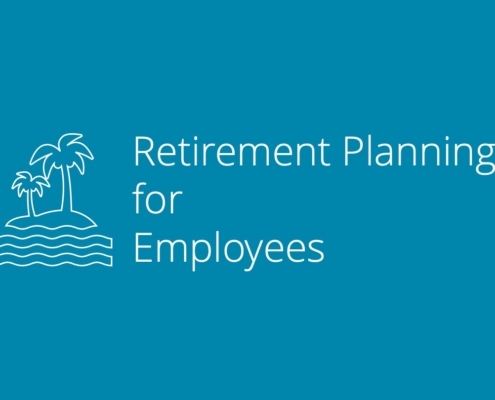
Retirement Planning for Employees
When thinking about retirement, it can be overwhelming to figure out all the numbers, like what age you're going to retire, how much money you need and how long do you need the money to last.
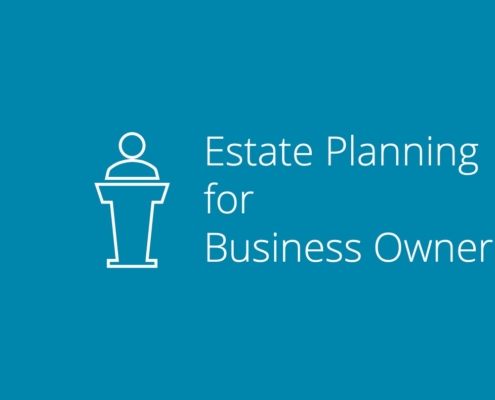
Estate Planning for Business Owners
What happens when the children grow up and they are no longer dependent on their parents? What happens to your other "baby"- the business? Estate planning for business owners deals with the personal and business assets.

Importance of a Buy-Sell Agreement
Working as a partnership between 2 or more individuals is never an easy task, and the situation only gets more complicated when one or more of them exits the business. Protecting not only the business, but your personal interests, as well as your family’s future are very important objectives for any business owner, and should not be overlooked.

British Columbia 2021 Budget Highlights
On April 20, 2021, the B.C. Minister of Finance announced the 2021 budget. We have highlighted the most important things you need to know, including:
• Changes in the requirement to repay the B.C. Emergency Benefit for Workers
• Home Owner Grant threshold change
• PST exemption for electric bikes
• Elimination of PST rebate for certain vehicle sales
• Delay in the carbon tax increase
• Tobacco tax increases
• Changes to the speculation and vacancy tax
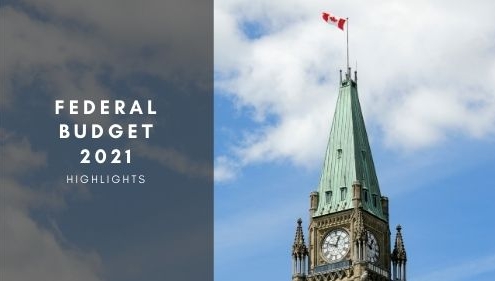
Federal Budget 2021 Highlights
On April 19, 2021, the Federal Government released their 2021 budget. Our article contains highlights of the various financial measures in this budget, divided into three different sections:
• Business Highlights, including an extension to COVID-19 Emergency Business Supports, new programs to support job creation, and a change in interest deductibility limits.
• Individual Highlights, including details on the tax treatment and repayment of personal COVID-19 benefits (such as CERB), eligibility changes to the Disability Tax Credit, an increase in OAS for those 75 and up, and support for job skills retraining.
• Additional Highlights, including a proposed federal minimum wage of $15, changes to the GST New Housing Rebate conditions, and new or increased taxes in areas such as luxury goods, tobacco, and Canadian housing owned by non-resident foreign owners.
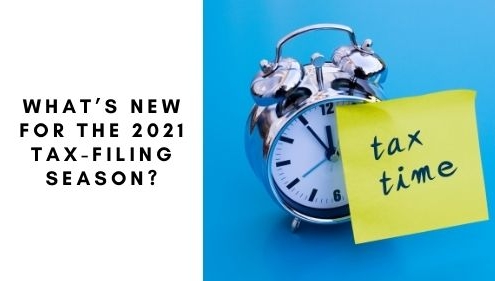
What’s new for the 2021 tax-filing season?
Tax season is upon us once again. But since 2020 was a year like no other, the 2021 tax-filing season will also be different. Due to all the changes in both where and how Canadians worked, the Canadian government has introduced some new tax credits and deductions to keep pace with these changes. Our article covers all of the following:
• How to claim home office expenses
• The new Canada Training Credit
• Pandemic emergency funds
• New digital news subscription tax credit
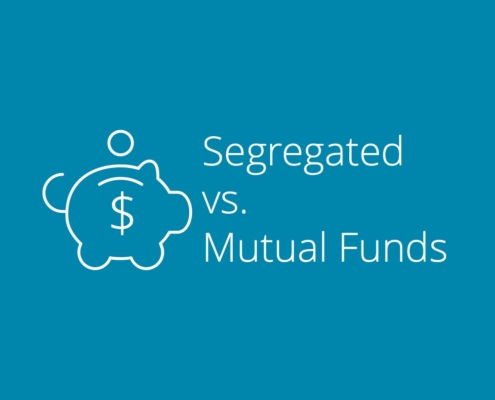
The Difference between Segregated Funds and Mutual Funds
Segregated Funds and Mutual Funds often have many of the same benefits however there are key differences you should consider like Maturity and Death Benefit Guarantees.
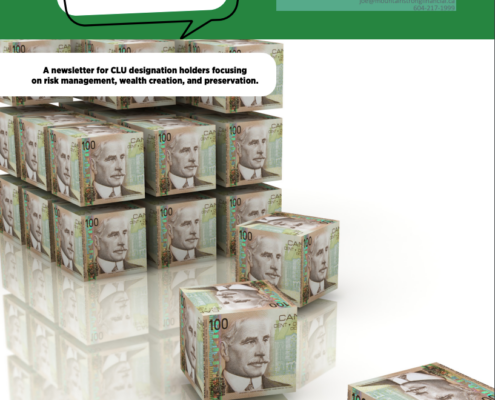 https://mountainstrongfinancial.ca/wp-content/uploads/2021/02/2021_IAFE_Comment_Newsletter_-_Jan_Feb_-_FINAL_pdf.png
1056
817
Mountain Strong Financial
https://mountainstrongfinancial.ca/wp-content/uploads/2020/12/mountainStrongLogo-copy.png
Mountain Strong Financial2021-02-24 11:47:082021-02-24 11:54:32CLU Comment: Leveraged Insurance Annuities and the CRA, The Importance of Share Valuation in Shareholder Agreements & Guarding Beneficiary Designations
https://mountainstrongfinancial.ca/wp-content/uploads/2021/02/2021_IAFE_Comment_Newsletter_-_Jan_Feb_-_FINAL_pdf.png
1056
817
Mountain Strong Financial
https://mountainstrongfinancial.ca/wp-content/uploads/2020/12/mountainStrongLogo-copy.png
Mountain Strong Financial2021-02-24 11:47:082021-02-24 11:54:32CLU Comment: Leveraged Insurance Annuities and the CRA, The Importance of Share Valuation in Shareholder Agreements & Guarding Beneficiary Designations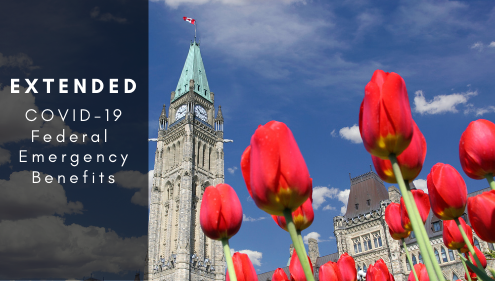
Extended COVID-19 Federal Emergency Benefits
On Friday, February 19, 2021, Prime Minister Justin Trudeau announced an extension to:
- Canada Recovery Benefit
- Canada Recovery Caregiving Benefit
- Canada Recovery Sickness Benefit
- Employment Insurance

Self-employed: Government of Canada addresses CERB repayments for some ineligible self-employed recipients
Great news for some ineligible self-employed Canadians who received the Canada Emergency Response Benefit (CERB)
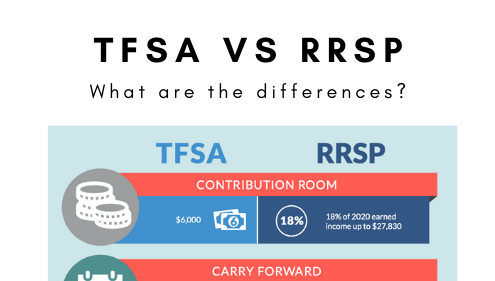
TFSA vs RRSP – What you need to know to make the most of them in 2021
Both TFSAs and RRSPs can be significant savings vehicles for your clients. We've put together an article to help your clients easily understand the differences between them – with one section focussing on differences in deposits and one focussing on differences in withdrawals.
The deposit section focuses on:
• How much contribution room is available each year
• How carry forward works for TFSAs and RRSPs
• Tax deductibility of contributions
• Tax treatment of growth
The withdrawal section focusses on:
• Conversion requirements
• Tax treatment of withdrawals
• Impact of withdrawals on government benefits
• Impact of withdrawals on contribution room
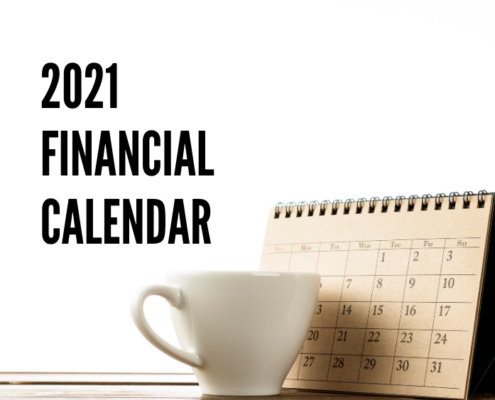
2021 Financial Calendar
We’ve put together a financial calendar for 2021. It contains all the dates you need to know to make the most of your government benefits and investment options. Whether you want to bookmark this or print it out and post it somewhere prominent, you’ll have everything you need to know in one place!
